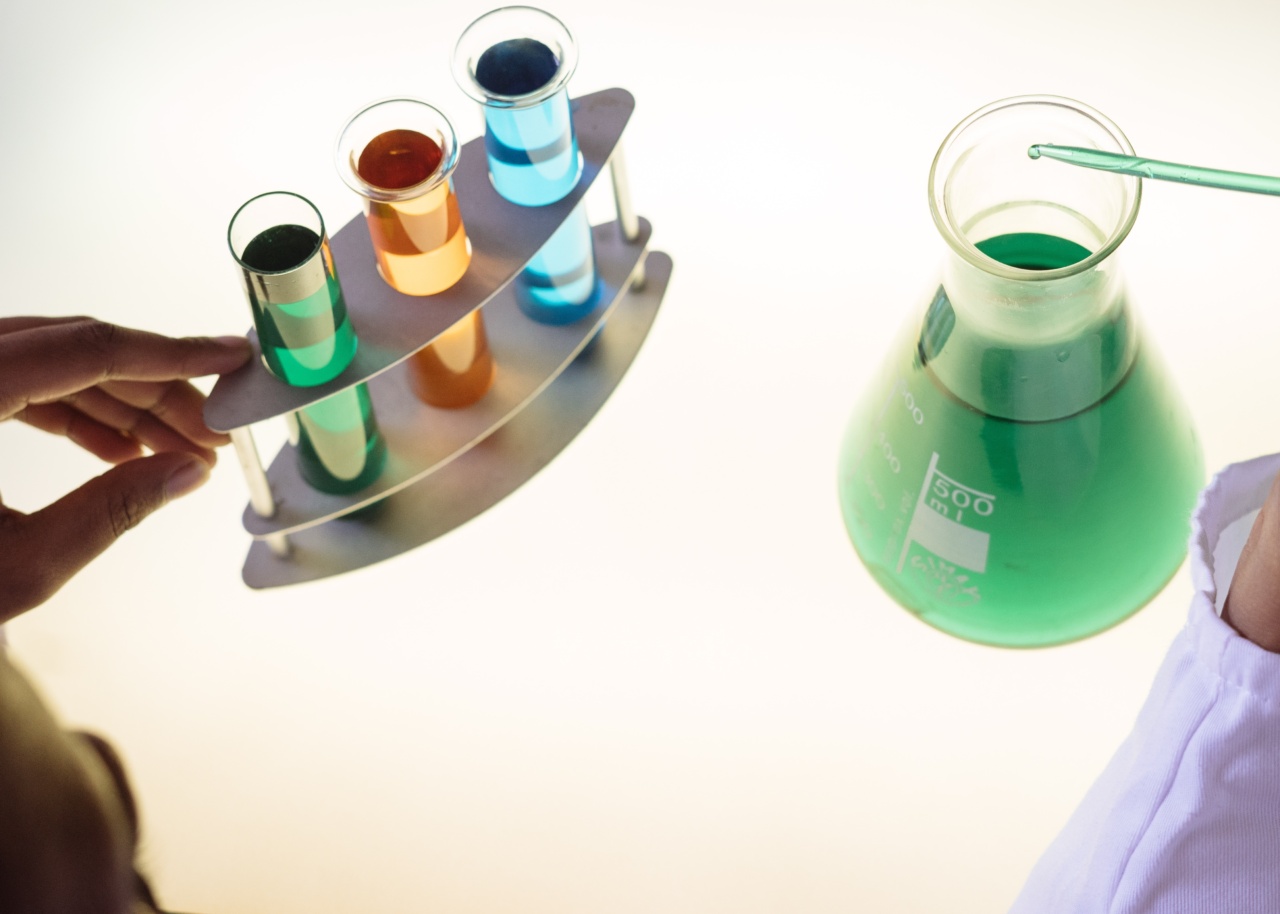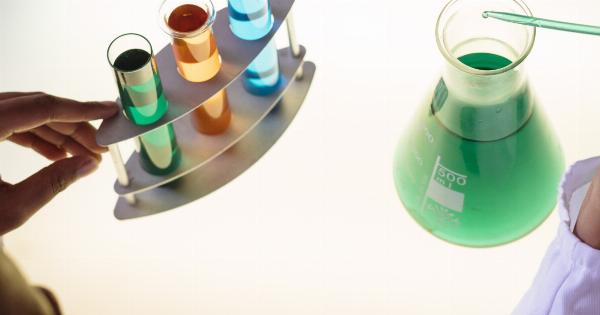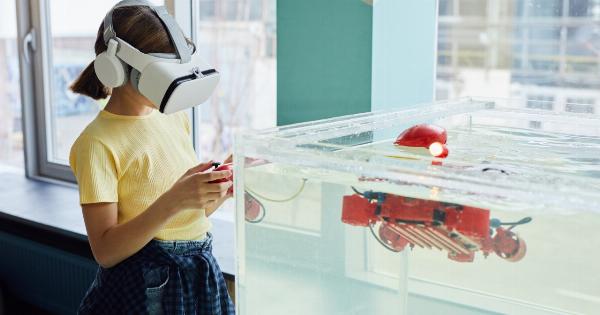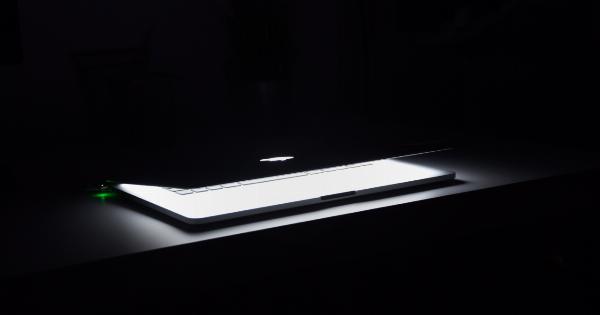In recent years, wearable devices have become increasingly popular for tracking our physical activity, sleep patterns, and heart rate. However, the potential of wearable technology extends far beyond fitness tracking.
Enter smart necklaces for microbial testing, an innovative application of wearable devices in the field of healthcare. These cutting-edge necklaces are equipped with sensors and detectors that can detect and analyze microbes, revolutionizing the way we monitor our health and detect infections.
In this article, we will delve into the world of smart necklaces for microbial testing, exploring their features, benefits, and potential applications in various industries.
What are Smart Necklaces for Microbial Testing?
Smart necklaces for microbial testing are wearable devices designed to monitor and analyze microbes present in our immediate environment.
These necklaces are equipped with advanced sensors, detectors, and microfluidic systems that can detect harmful microorganisms, allergens, and pathogens in real-time. By wearing these necklaces, individuals can gain insights into the microbial landscape they are exposed to, helping them make informed decisions about their health and well-being.
How do Smart Necklaces for Microbial Testing Work?
The inner workings of smart necklaces for microbial testing involve a combination of sensor technologies, microfluidics, and data analysis algorithms.
These necklaces are equipped with sensors that can detect specific microbial signatures, such as DNA sequences or antigens. When a microbe comes into contact with the necklace, the sensors identify and capture the microbial signature.
The captured microbial signature is then transferred to the microfluidic system within the necklace. The microfluidic system carries out multiple tests to analyze the captured microbe and identify its properties.
These tests may include DNA amplification, protein analysis, or immunoassays.
Once the analysis is complete, the results are sent to a connected mobile app or a cloud-based platform for further processing and visualization.
Users can access detailed information about the detected microbes, including their species, potential health risks, and recommended actions.
Benefits of Smart Necklaces for Microbial Testing
1. Early Detection of Infections
Smart necklaces for microbial testing offer the potential for early detection of infections. By continuously monitoring the microbial landscape around us, these necklaces provide real-time data on the presence of harmful microorganisms.
This early warning enables quick identification of potential infections, allowing individuals to take prompt action and seek appropriate medical treatment.
2. Personalized Health Monitoring
Just as fitness wearables provide personalized insights into physical health, smart necklaces for microbial testing offer personalized health monitoring.
By analyzing the microbes present in our immediate environment, these necklaces can provide tailored recommendations for individuals with specific health conditions or sensitivities. For example, individuals with allergies can receive alerts if allergens are detected nearby, allowing them to take precautions or avoid exposure.
3. Prevention of Outbreaks
Smart necklaces for microbial testing have the potential to play a significant role in preventing disease outbreaks.
By monitoring the presence of infectious microorganisms in real-time, these necklaces can generate valuable data on the spread and prevalence of diseases. This information can be used by healthcare professionals and public health authorities to take proactive measures, such as implementing targeted interventions or recommending hygiene practices in specific areas.
4. Research and Environmental Monitoring
The data gathered by smart necklaces for microbial testing can also contribute to research and environmental monitoring efforts. Researchers can utilize this data to study the microbial diversity and dynamics in different regions or environments.
Additionally, environmental monitoring agencies can leverage the insights provided by these necklaces to assess the quality of air, water, or soil in various locations, aiding in the identification of potential sources of contamination.
Potential Applications of Smart Necklaces for Microbial Testing
The applications of smart necklaces for microbial testing are vast, spanning across multiple industries and sectors. Here are some potential areas where these innovative wearable devices can make a difference:.
1. Healthcare
In the healthcare industry, smart necklaces for microbial testing can enhance patient safety by providing continuous monitoring for hospital-acquired infections.
These necklaces can detect the presence of pathogens in medical facilities, alerting healthcare professionals to potential risks and facilitating targeted interventions. Additionally, individuals with compromised immune systems or chronic conditions can benefit from wearing these necklaces to monitor their immediate environment for potential health threats.
2. Food and Beverage
The food and beverage industry can also leverage smart necklaces for microbial testing to ensure product safety and quality.
These necklaces can detect the presence of harmful microorganisms in food preparation areas, alerting staff to potential contamination risks. By monitoring microbial levels in food processing facilities, companies can take preventive measures to maintain hygiene standards and minimize the risk of foodborne illnesses.
3. Travel and Tourism
Smart necklaces for microbial testing have the potential to revolutionize the travel and tourism industry by enhancing the safety and well-being of travelers.
These necklaces can detect potentially harmful microbes in hotel rooms, cruise ships, or public transportation, allowing individuals to make informed decisions about their surroundings. Travelers with specific health concerns or compromised immune systems can benefit greatly from wearing these necklaces to minimize the risk of infections during their journeys.
4. Biomedical Research
In the field of biomedical research, smart necklaces for microbial testing can aid in the study of infectious diseases and the identification of new pathogens.
Researchers can utilize the data collected by these necklaces to gain insights into the prevalence and distribution of microbes in different environments. Moreover, these necklaces can serve as early warning systems for potential disease outbreaks, facilitating prompt responses and preventive measures.
The Future of Smart Necklaces for Microbial Testing
The potential of smart necklaces for microbial testing is immense, and the future holds exciting prospects for this innovative wearable technology.
As advancements in sensor technologies continue, these necklaces will become even more sensitive and accurate in detecting a wide range of microorganisms. Improved data analysis algorithms will enable more comprehensive insights into the microbial landscape, supporting personalized recommendations and interventions.
Furthermore, the integration of smart necklaces with other wearable devices, such as smartwatches or fitness trackers, can amplify their capabilities and provide a holistic view of an individual’s health.
Wearable technology companies are already exploring these possibilities, envisioning a future where individuals can seamlessly monitor their overall health, from physical activity to microbial exposure, using a combination of smart accessories.
Conclusion
Smart necklaces for microbial testing represent a groundbreaking fusion of wearable technology and healthcare.
These necklaces have the potential to revolutionize the way we monitor our health, detect infections, and make informed decisions about our well-being. From early detection of infections to personalized health monitoring, the benefits of these innovative wearables are vast.
With their potential applications spanning across industries, smart necklaces for microbial testing have become an exciting frontier in the field of wearable technology.





























